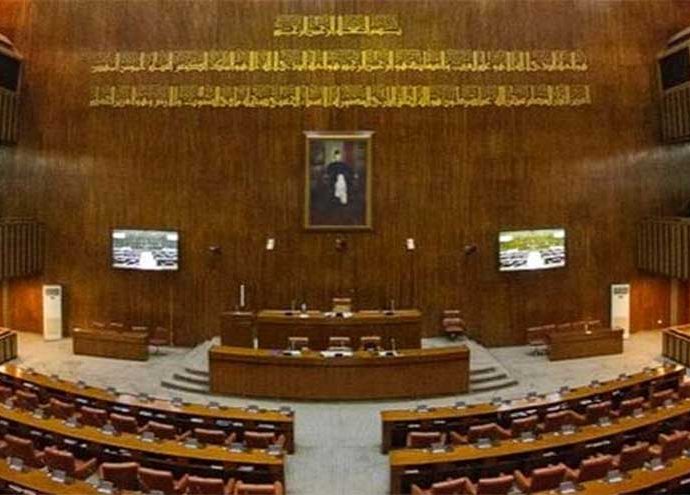ISLAMABAD — The proposed 27th Constitutional Amendment, which was authorized by the Senate’s Joint Committee on Law and Justice and the National Assembly, will be tabled in the Senate today (Monday).
The Senate session has been scheduled for 11 a.m., and an agenda has been released. The Standing Committee on Law and Justice’s report on the 27th Constitutional Amendment will be delivered to the House. Senator Farooq H. Naek will give the committee’s findings, and the Minister of Law will offer the amending bill for approval.
Following extensive deliberations, the combined Senate-National Assembly Law and Justice Committee adopted modifications to Article 243 of the Constitution on Sunday.
According to legislative sources, agreement was obtained on the formation of constitutional courts and other important issues.
Coalition parties introduced three new amendments at a combined session of the Senate and National Assembly standing committees on law and justice.
According to sources, negotiations on the text of the proposed 27th Constitutional Amendment have concluded, and a final decision on the further revisions is expected tomorrow.
According to Farooq Naek, committees on the 27th Amendment will wrap up their discussions today.
According to reports, the Awami National Party (ANP), Balochistan National Party (BNP), and Muttahida Qaumi Movement (MQM) have submitted recommended revisions.
According to parliamentary sources, the administration requested additional time to consider the ANP’s proposal to modify the name of Khyber Pakhtunkhwa and the BNP’s amendment to increase the number of provincial assembly members in Balochistan.
Both suggestions will be examined, with a final decision likely by tomorrow.
Following prolonged debate, the committee adopted the Article 243 revisions, as well as a language providing the President perpetual immunity.
Furthermore, the joint parliamentary committee authorized the formation of constitutional courts and enacted an amendment that increased the time limit for pending case judgments from six months to one year. Sources stated that cases that are not pursued within a year would be considered concluded.





